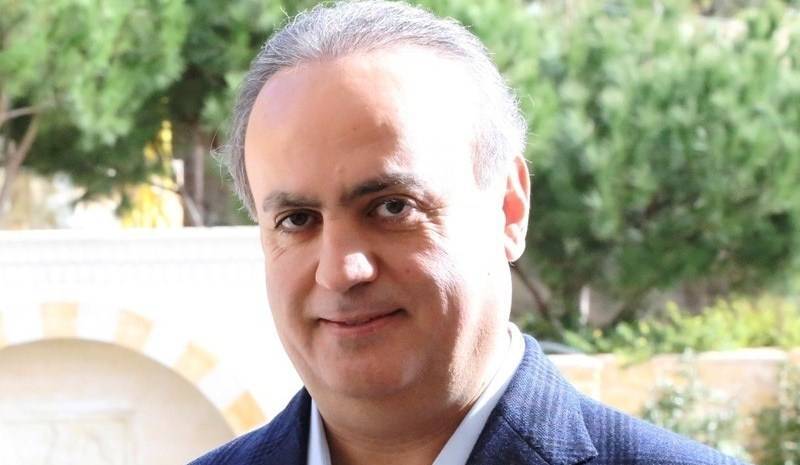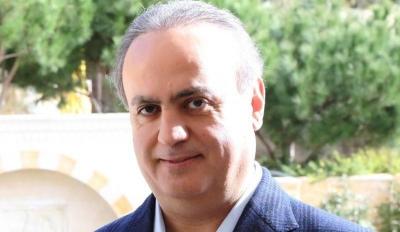Wiam Wahhab, the leader of the "Arab Unification Party," has called on President Michel Aoun to conduct a serious investigation into the events in Tripoli, revealing the involvement of officers in these incidents.
According to the National News Agency, during a conversation with MTV's Jessica Azar on the program "40?", Wahhab supported Prime Minister-designate Saad Hariri's claims regarding officers' complicity in the Tripoli events, urging the army commander and heads of security agencies to take responsibility and calling for a decisive role for the army. He emphasized the need for the state to embrace Tripoli like a mother embracing her children rather than using force against them, blaming the situation in Tripoli on billionaires from the city and the state, who are watching the neglect of the city's situation without achieving balanced development.
Wahhab pointed out that ministries have no value today as there are no funds available for their expenditures, with only Central Bank Governor Riad Salameh possessing a limited amount of money. He described Hariri as a good man but expressed doubt about his success in Lebanon, despite hoping he could form a government to ensure the success of the French initiative titled "the return of Saad Hariri.” He noted that many regions condition their aid on the success of the French initiative that Lebanon desperately needs.
Wahhab affirmed that Syria is not responsible for any assassinations in Lebanon, referencing previous communications where Jeffrey Feltman warned him in 2004 about greater issues ahead, which were followed by the assassination of former Prime Minister Rafik Hariri. He criticized the international tribunal for corruption, accusing it of targeting Syria and then Hezbollah for the same reasons.
He also stated that the current government made a significant mistake by engaging in a conflict with the security, judiciary, and administrative mafia unprepared, entering battle without the necessary resources while they were already stronger and entrenched in the administrations. Wahhab mentioned that there is a substantial campaign against Jibran Bassil, the head of the "Free Patriotic Movement," stating that the demonization began when he requested the Christian share of power, which was previously divided among Nabih Berri, Walid Jumblatt, and Hariri.
Wahhab remarked that if presidential elections are held, President Aoun will leave his position; if not, Aoun will remain in Baabda and will not leave a power vacuum nor hand over power to the Prime Minister. He explained that Hezbollah cannot convince President Aoun to do anything he does not desire, as the party has decided not to persuade him on matters he is not inclined to accept.
Regarding rumors of the Central Bank Governor transferring $400 million to Switzerland, he stated, "If Riad Salameh is involved, may God punish him. However, they are looking for a scapegoat to silence Salameh and seize what remains of the deposits. They want to dismiss him and replace him with an incompetent person." In this regard, Wahhab called on the state to freeze the assets of anyone involved in public affairs and urged the Europeans to take over the files related to infrastructure, ports, electricity, and communications.
Wahhab revealed that he has no financial sources due to Hezbollah's current circumstances, noting that their funding comes from operations in Iraq, which they have managed to maintain. He affirmed his support for the resistance without conditions, stating that some ignorant individuals believe that if they get your support, they can buy you. He reiterated that Hassan Nasrallah is above such calculations, stating that if he wants something from Wahhab, he will reach out directly. Wahhab declared, "I have fought against everyone, and I am neither bought nor sold," reiterating his condemnation of attacks on Saudi Arabia.
Wahhab confirmed that his relationship with Syria is stable, akin to his relationship with the resistance, explaining that the conflict he had with the Syrian ambassador in Lebanon, Ali Abdul Karim, was not directed at him but at others. Regarding his candidacy for elections, he stated, "If it weren't for the insistence of the people, I wouldn't run in the elections as they are clientelist elections." He noted that some allies from Hezbollah betrayed him in the election and faced consequences.
He explained that the "Units of Unity" were established to combat terrorism in case it infiltrated Lebanese villages, clarifying they are not a military organization but a sports one, although they are prepared to use arms if necessary – not against the state, though. He indicated that the Druze consider Syria a third sanctuary and are ready to defend it. He announced that he will ally with the Free Patriotic Movement and the Democratic Party in the upcoming elections.
Wahhab observed that the Progressive Socialist Party benefited from its capabilities without reciprocation, stating that in 1990, it decided not to continue political feudalism, leading to its departure from the Socialist Party. He mentioned that the Druze duality paved the way for democracy and noted that Sheikh Bahjat Gheit contributed significantly to the community without exploiting anyone.
In response to a question about who he regards as his greatest enemy, he named Imad Othman, whom he described as a criminal who should be punished alongside judge Samir Hamoud for the murder of his son Mohammad Abu Diab. He expressed overall goodwill toward Marwan Hamadeh and respect for Fouad Siniora's intellect, while considering Najib Mikati a friend, albeit one who has not been consistent in his political work. Regarding Saad Hariri, he stated he does not consider him an enemy, describing him as a good person wishing him success in forming a government and in the French initiative.
He expressed a preference to ally with Bahaa Hariri, urging him to be mindful of the Lebanese atmosphere, though disagreeing with him on his stance toward the resistance. "I don't work for anyone; intelligence officers should know that I'm more informed than them, and any figure from Lebanon or Syria who offends me, I would spit in their face. They call me to provide information because they know I speak fearlessly."
Wahhab criticized Michel Sleiman's presidency as the worst era, arguing that it was dominated by the powers that be, which politicized the army and aimed to fragment it. He acknowledged Walid Jumblatt's significant role in Lebanese politics, recognizing him as a skillful player, while pointing out that the Jumblatt family's leadership over the Druze has, intentionally or unintentionally, weakened their influence over time.
Responding to a question from his son Hadi Wahhab about his repositioning with allies, he stated that in 2005, Hassan Nasrallah upheld their dignity in the matter of the international tribunal when they tried to investigate him. In 2011, he protected Syria, and when an attack occurred in Janin, Nasrallah intervened and issued commands. He added that they cannot be swayed by electronic trolls and that their influence is negligible.
Regarding the international tribunal's ruling, he dismissed it as weak, referring to it as "a phone call to Ayyash," according to Ziad Rahbani. Wahhab stated that Jibran Bassil has reclaimed Christian leadership, while Samir Geagea is trying to avoid confrontation with those who previously imprisoned Christians, pointing out that the Free Patriotic Movement is stronger than the Lebanese Forces. Wahhab concluded by expressing his support for Suleiman Frangieh for the presidency and declaring his intention to vote for Jibran Bassil after six years, urging Hezbollah to facilitate an understanding between Frangieh and Bassil.
In closing, Wahhab wished for a speedy recovery for Deputy Jean Obeid, saying, "You have been away for too long, and we miss you; please don't be hard on us," noting his special fondness for Obeid, the only person he allows to yell at him and argue with him.




